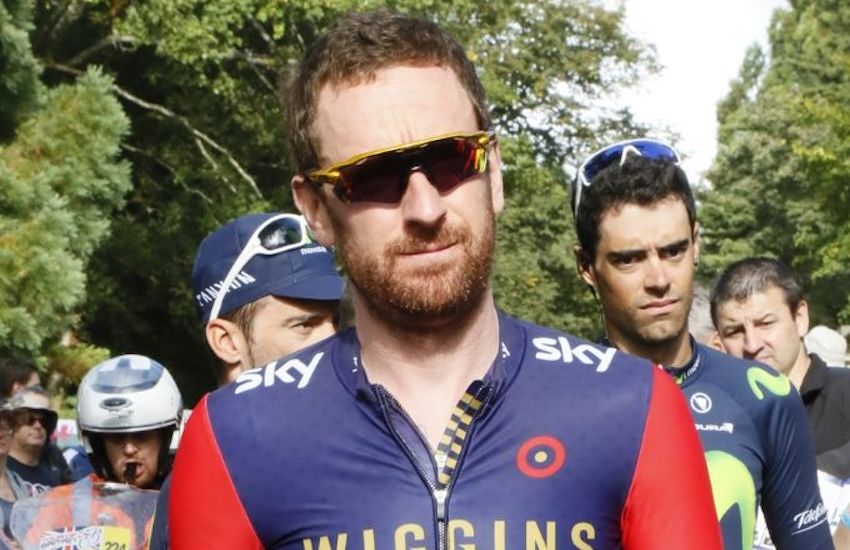


I love sport. If sport is on tv (and my daughter isn’t making me watch a princess movie), I usually have it on, even if it is just in the background whilst doing other things.
Cycling isn't a sport I am an avid fan of, but during the Olympics and the Tour de France it does grip my attention.
In 2012, cycling didn't just grip me, it gripped the nation as Sir Bradley Wiggins emerged as a home-grown hero. I had been paying more attention to Sir Bradley after his Olympic gold medal wins in the track cycling events in 2008 and I was excited by his prospects in 2012. The first Brit to ever win the Tour de France, followed by more gold-medal success at London 2012 cemented him as a national treasure. The Sun Newspaper even gave out 'Wiggo' sideburns in homage to his then-iconic facial hair.
As far as I – and most other people – knew, Sir Bradley retired from cycling in 2016 to enjoy the spoils of decades of hard work and success. Or so we thought.
Over the last few weeks, I was saddened to see headlines that Sir Bradley had declared bankruptcy; another athlete taken advantage of by 'bad actors' in the wealth industry. I resisted reading many of the articles because, in my opinion, the media seems to relish the story of fallen heroes. I wanted to hear a first-hand account, which came when Sir Bradley gave a brilliantly honest interview on the High-Performance podcast.

The glimpse into Sir Bradley Wiggins as a person – rather than a sports personality - during the interview gives listeners an insight of what drives someone who reaches the pinnacle of their sport. Yet, as is often the case, the road to the summit and the descent into retirement and beyond isn't as smooth as is portrayed in the public eye. Something that particularly resonated with me in the interview, was Sir Bradley describing how despite all his hard work, he never felt deserving of his success or praise. Hearing Sir Bradley recall moments either side of his success - from teenage trauma to an intervention by his son last year - was a stark reminder that, although professional athletes are hailed as "superhuman", sport may be an escape, from darker realities.
Although the challenges Sir Bradley faced are a hard listen, I thoroughly enjoyed listening and the hour-long episode flew by. However, I couldn't help being left with an overwhelming sense of frustration that his financial situation could have easily been prevented if his advisors and service providers had proactively kept up to date with and navigated various tax, legal and regulatory changes. It's a fundamental part of wealth services, particularly to the ultra-rich and famous who often experience increased risks.
Financial strive – including bankruptcy – is an all-too-common end of the story for professional sports men and women. In the interview, Sir Bradley described himself as being "fleeced left, right & centre" and a victim of "professional negligence". The interview stands as a hard-hitting account – and cautionary tale – of how important it is for athletes to have people in their inner circle who have their best interests at heart not only during their success, but also for life after sport, which can be a difficult transition.
Once an athlete starts earning significant sums of money, self-serving 'sharks' (will inevitably circle, looking to take advantage for personal gain. During the interview Sir Bradley describes himself as a "pawn in everyone else's game", when in fact, he should have been the master of his own.
Sir Bradley describes "concentrating on riding his bike", only to find when the pedals stopped turning that the people he had trusted with his intellectual property (including image rights and trademarks), which held significant value at the peak of his career, had left him with nothing for his retirement.
Athletes are often naive to the risks of managing and safeguarding wealth, and may underestimate the importance of choosing experienced, regulated, and reputable service providers.
It was interesting to me that, although he described himself as having been "gullible" with respect to the people he trusted with his wealth, Sir Bradley also noted that athletes – particularly those who achieve greatness – are highly coachable. Being willing and able to heed the advice of others, and implement strategies based on expert advice is not only valuable in sport, it can also be integral in making financial decisions. However, you need to have the right coach (or service provider) who can tailor their approach to get the best from, and for, individuals.
I hope Sir Bradley's experience, and the media coverage it has gained, can help educate other athletes and their families on the importance of having the right people around to protect their wealth for life after sport. Sir Bradley's retirement could have potentially been a different story if he'd had service providers experienced in wealth structuring and intellectual property, and who can serve as the first line of defence against 'bad actors' looking to take advantage.
If you can spare the time to give the interview a listen, I would highly recommend it; it's a fascinating listen of a life of both hardship and success.
Simon Murphy is an Associate Director at Saffery Trust.
Pictured: Bradley Wiggins (Shutterstock).